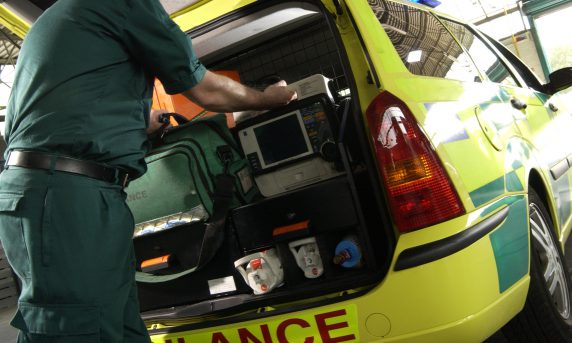Paramedics may rotate between networks and ambulances under HEE plans

Exclusive: Plans are being drawn up for paramedics hired by networks to work across both practices and ambulances, so the emergency service does not ‘lose’ its staff, Health Education England’s lead GP has said.
In an exclusive interview with Pulse, HEE’s deputy medical director of primary and integrated care, Professor Simon Gregory, said ambulance trust chief executives were ‘worried’ about the staffing gap that would be left by paramedics moving to primary care networks (PCNs).
HEE has proposed rotating paramedics, which could involve them moving between general practice, emergency departments and ambulances, to address the concerns, said Professor Gregory.
Under the new five-year GP contract in England, PCNs will be funded to hire 22,000 additional practice staff, including paramedics, physiotherapists and pharmacists, by 2023/24.
Paramedics will be funded from 2021, with NHS England providing 70% of the cost to hire the role – but networks will pay for the rest.
HEE’s plans to move paramedics between services follows a pilot of rotational working that started in 2016 in the East Midlands, Yorkshire, north-east and south-central regions of England, which HEE said had increased retention of clinicians and improved their skillset.
Professor Gregory told Pulse: ‘We’re working with ambulance trust chief executives, who are worried that if they lose their paramedics to general practice, who’s going to be on the ambulances?
‘We’ve put forward a programme – called the rotating paramedics – where people might spend some time on a vehicle, some time in an emergency department, some time in general practice. There are huge opportunities here.’
An HEE spokesperson said: ‘Evidence suggests that rotating paramedics into general practice can enable access to supervision and training for enhanced skills such as independent prescribing for paramedics, enhancing ambulance service capacity to provide care closer to home.’
Ambulance staff taking on general practice work is already occurring in parts of the UK. One ambulance service in Sussex put a rota system in place last year, allowing paramedics to carry out GP home visits.
A pilot in Scotland was also carried out last year, putting paramedics in GP surgeries to ease pressure by training them to see patients with acute illnesses and conduct home visits.
In addition, last year NHS England announced new laws to train paramedics to write prescriptions to free up GP time.
However, it recently emerged that networks are ‘reluctant’ to employ additional staff because of uncertainty around VAT issues and funding.
Pulse July survey
Take our July 2025 survey to potentially win £1.000 worth of tokens











